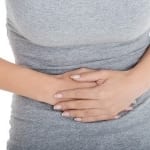Postural Orthostatic Tachycardia Syndrome (POTS)
What is POTS?
POTS is characterized by an unusually high increase in heart rate upon standing from a lying position. POTS is most often seen in females of child-bearing age (15 to 50), but anyone can develop POTS; however, the majority of cases are seen in women. It is not a disease state, but rather a collection of symptoms that are often seen together. Therefore, there are numerous causes of POTS and with it, multiple subtypes. These can include imbalances of the autonomic nervous system, periods of rapid growth, or immunological triggers such as certain vaccinations and infections.
What Causes POTS?
POTS is the result of multiple symptoms related to autonomic nervous dysfunction. There are therefore multiple causes of POTS, which are often grouped into three categories: hypovolemic POTS, partial dysautonomia (or neuropathic) POTS, and hyperadrenergic POTS. Hypovolemic POTS is associated with low blood volumes. Partial dysautonomia POTS refers to a wide range of conditions affecting the autonomic nervous system. Finally, hyperadrenergic POTS refers to an overproduction of the hormone and neurotransmitter norepinephrine, one of the mediators of the body’s “fight-or-flight” response. It is important to note that these subclasses are not mutually exclusive, and a patient will therefore most likely suffer from multiple classes.
Symptoms of POTS
Common symptoms of POTS include, but are not limited to:
- Lightheadedness
- Fatigue
- Brain fog
- Cognitive impairment
- Palpitations
- Presyncope (near loss of consciousness)
These symptoms will typically resolve upon lying down.
Testing for POTS
Testing is normally done via bedside heart rate monitoring. After lying for 5 minutes, the patient’s blood pressure and heart rate will be measured. This will be repeated upon standing, and at 3, 5, and 10 minutes. Positive POTS testing will result in an increase in heart rate of 30 BPM in adults and 40 BPM in children and adolescents.
Treatment for POTS
As every case of POTS is different, it is important to consult with your healthcare provider for a treatment plan tailored to your individual needs. These can include:
Exercise
Exercise is a key lifestyle change for any patient suffering from POTS as it will improve cardiovascular efficiency. Exercise plans should be tailored to your own fitness levels. Some suggestions include:
- Leg/arm pillow squeezes – while lying down, place a pillow between your knees or palms and squeeze together for 10 seconds at a time
- Alphabet toes – while laying in bed, write your name or the alphabet with your toes
- Front leg lifts – while laying on your back, lift one leg up, pointing the toes to the ceiling; repeat with the other leg
- Side leg lifts – while laying on your side, lift your leg up sideways and then bring the leg down without touching the other leg; repeat on the other side
As your fitness level increases, it is also beneficial to begin adding recumbent cardio exercises – such as rowing, recumbent biking, and swimming – to your exercise routine in order to improve cardiovascular health. Weight training has also been shown to be beneficial for POTS.
Water Intake
It is recommended that patients who suffer from hypovolemic POTS increase their water intake in order to increase their blood volume. On average, it is recommended to increase fluid intake to about 2-3 liters of water per day. Large amounts of water can however disturb electrolyte concentrations, so a physician should be consulted.
Supplements
The addition of salt pills as a supplement is often used in the treatment of POTS. As salt is absorbed into the bloodstream, the body will release the hormone aldosterone to compensate for the increase in salt concentration. This will in turn increase water retention at the kidneys, increasing blood volume.
Additional supplements like Quinton hypertonic or Quinton isotonic solution could also be helpful. QuintonTM (both hypertonic and isotonic ) solution is nutrient rich marine water that provides a combination of bioavailable minerals, used to improve intravascular volume. Marine water supports cellular and electrolyte balance and provides gentle detoxification. According to several of our patients, taking 1-2 ampules of hypertonic solution helps them manage POTS improving their Quality of Life and daily function.
Lifestyle Changes
Adding compression clothing to your daily routine can be beneficial for certain patients suffering from POTS. By wearing compression stockings, blood flow to the lower extremities is decreased, allowing it to remain in the upper portion of your body. This is contraindicated in patients with poor blood perfusion to the legs.
Avoiding certain activities, which cause excessive sweating, may also help with POTS. Examples of these are saunas and hot yoga. Large amounts of salt can be lost while sweating, decreasing both blood volume and blood pressure.
How We Can Help
In most cases, regular exercise and nutritional modifications are going to be the best way to manage POTS. Working with a nutritionist who has experience treating patients with this condition and has knowledge on the most effective nutritional strategies to manage this condition is highly recommended.
To make an appointment with our nutritionist, please call 703-532-4892.
Other diagnostic and management options include:
- Heart Rate Variability
- Sleep evaluation and management
- Meditation therapy for stress management
- Breathing exercises
We are here for you, and we want to help.
Our goal is to return you to optimal health as soon as possible. To schedule an appointment please call: 703-532-4892 x2

